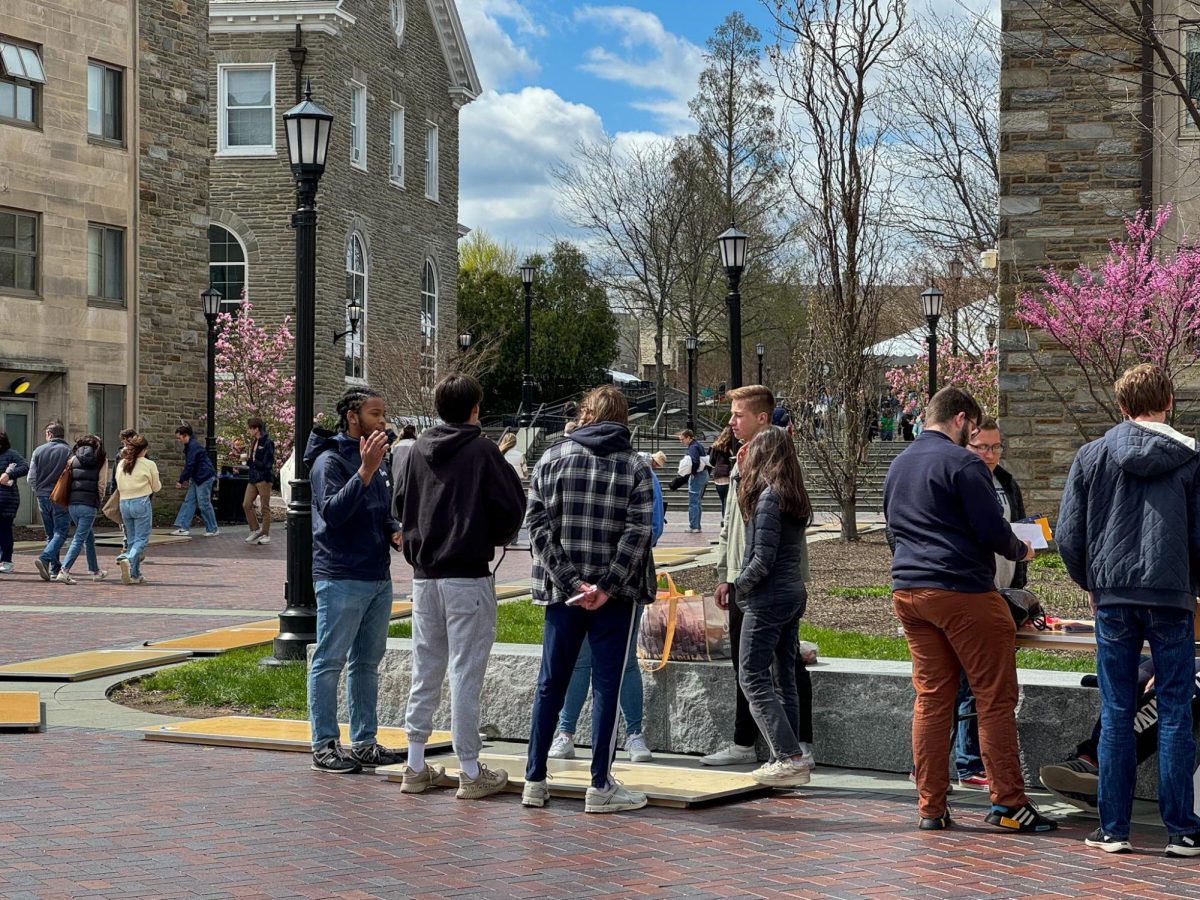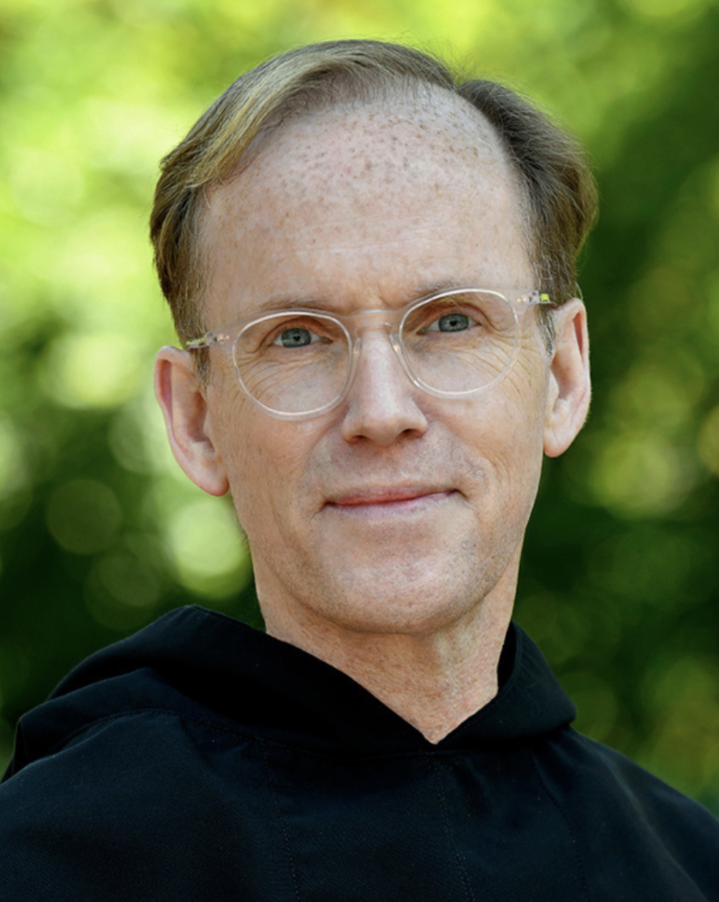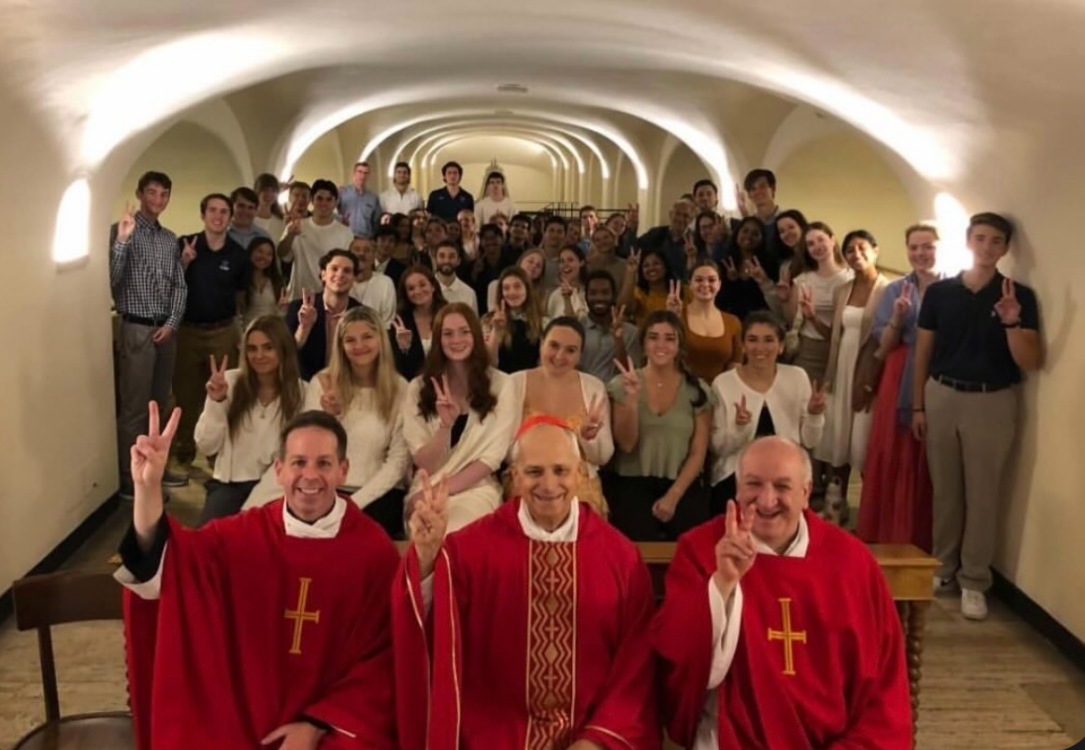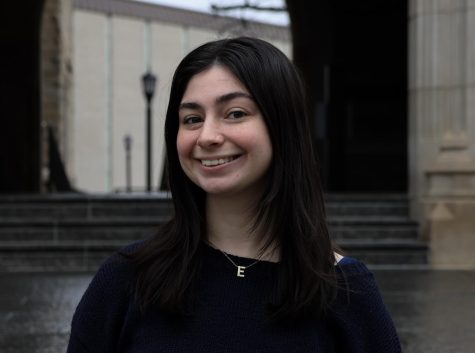In the wake of the Class of 2028’s Admitted Students Day this past Saturday, current high school seniors face the momentous decision of where to commit to college. As Villanova prepares for the Class of 2028, a profile has emerged of this year’s incoming class.
Michael Gaynor, Executive Director of Undergraduate Admissions, explained the admissions for this year’s class.
“Building our Class of 2028, we were very fortunate,” Gaynor said. “We had 23,842 [people] apply, and we’re looking for a first-year class of 1,720.”
Compared to last year’s applicant pool, the number of applicants was slightly larger and the target class is roughly the same as last year’s, with a mere 20 extra students.
At this year’s Admitted Students Day, more than 4,500 students were in attendance. The students in attendance on Saturday were from 38 states, Washington D.C., Puerto Rico and the six international countries registered included Brazil, Canada, Guatemala, Switzerland and the UK.
In the entire applicant pool, this year’s applicants were from all 50 states and Washington D.C. From the U.S. territories, there were 167 applicants from Puerto Rico, nine from the Virgin Islands and five from Guam.
Among the applicant pool, there were 119 different languages spoken, which Villanova learned through the Common Application, according to Gaynor. The top three languages among these, besides English, are Spanish, Mandarin and Korean.
This year’s applicants also had very high grades and exam scores. The weighted GPA among applicants was 4.40. Among those who had a class rank, 78% ranked in the top 5% of their class. Additionally, 25% were either ranked first, second or third in their class.
According to Gaynor, these increased metrics are the natural result of higher numbers of applicants.
“In 1982, we had 6,914 applicants,” Gaynor said. “And here we are at 23,842 now. By virtue of more applicants, and we had more applicants this year than we did last, the competition does tend to get more keen.”
Though 54% of the applicants Villanova were admitted test-optional, the average SAT score for the applicants was 1489. According to Gaynor, test optional admittance will continue for at least the next two years.
The application process for the Class of 2028, according to Gaynor, was looked at from a comprehensive perspective.
“We use our seal as our compass for our holistic review process,” Gaynor said. “The veritas are the grades, the rigor of curriculum, the rank. But always in the context of opportunity at that school. The unitas are the extracurriculars, leadership… The caritas, we look for changemakers– cultural commitment, lived adversity, resilience. We really lean into demonstrated kindness.”
When asked to describe the Class of 2028 in three words, Gaynor said they are “smart, compassionate and ‘doers.’”
And if one is walking around campus, one’s best bet to address an admitted student from the Class of 2028 is either Ryan or Ava, as those were the two most common names among applicants.







